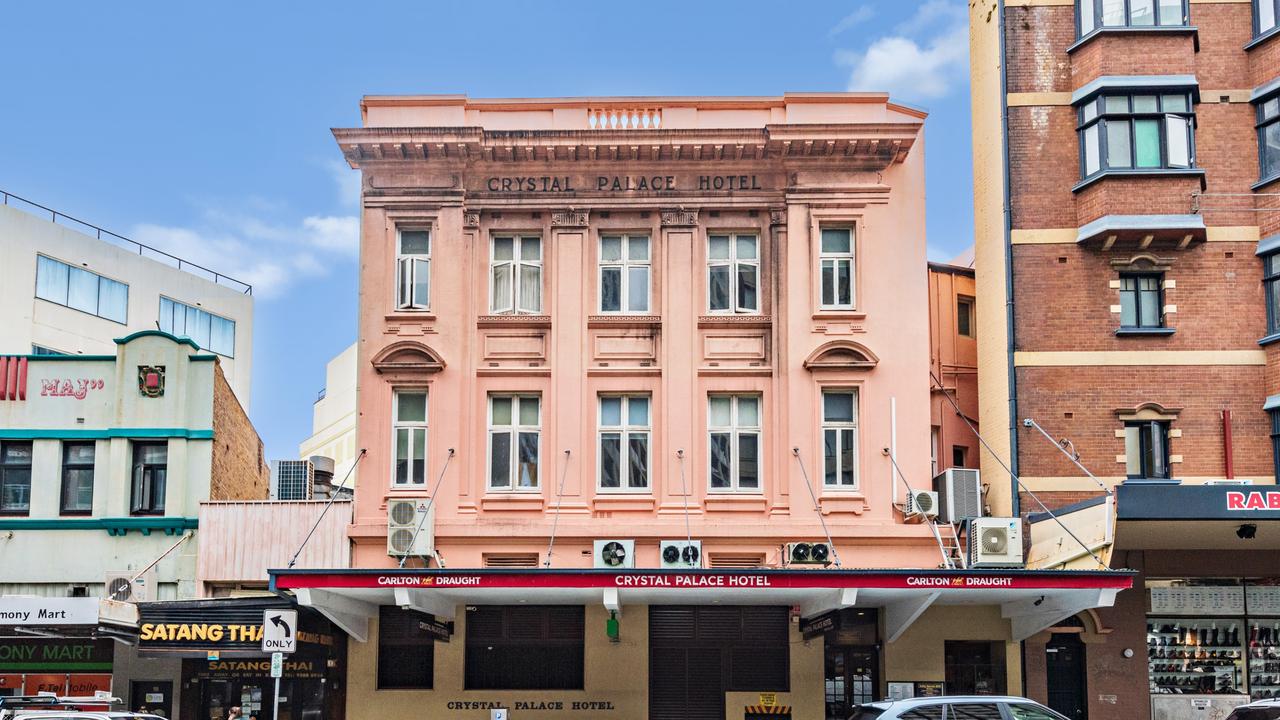Industry wants more than just planned debit card fee axed
Payments industry figures say the move to ban debit card surcharges doesn’t go far enough to fix the problems in the sector.
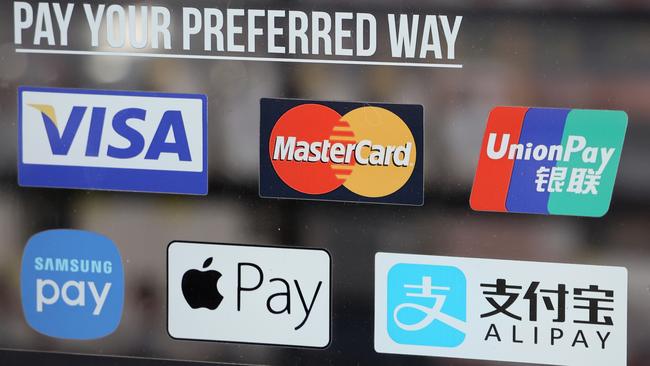
Business
Don't miss out on the headlines from Business. Followed categories will be added to My News.
The Reserve Bank has opened the door to the Albanese government’s plan to ban debit card surcharges by 2026 in the biggest shakeup of the payments industry in years but some in the sector are warning of unforeseen consequences and others calling for more to be done.
The plan to ban the debit card surcharges, currently running at almost 8c per transaction, comes after months of growing unrest over the fees which have ballooned as more businesses slap extra costs on card transactions.
News of the review sparked a sell off in the ASX-listed payments players SmartPay and Tyro Payments, which were the worst two stocks on the All Ordinaries Index. SmartPay slumped 17.7 per cent to 70c, while Tyro dropped 11.05 per cent to 80.5c.
The announcement on Monday that the government would look to ban fees on debit spend was swiftly followed by the RBA confirming it would investigate the regulation of the payments system, including examining the costs businesses faced when taking card payments as well as the broader surcharging framework.
The RBA said card payment costs and surcharging are “attracting more attention” from merchants and consumers in an “environment of heightened concern around the cost of living.”
Announcing its inquiry on Tuesday, the RBA said it was “timely” to review whether regulatory settings “could be adjusted to put further downward pressure on merchant card payment costs and whether the RBA’s surcharging framework remains fit for purpose”.
“This recognises that many years have passed since these rules first came into effect.”
The cost of living, card payment costs and surcharging were “linked” because merchants would be less likely to surcharge consumers if card payment costs were lower, the RBA added.
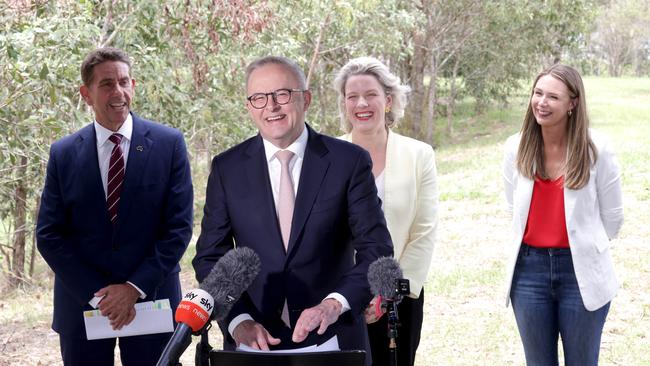
Prime minister Anthony Albanese said the government is “cracking down on unfair and excessive card surcharges to get a better deal for Australians and small businesses at the physical and online checkout.”
The Prime Minister said the government is “prepared to ban debit card surcharges”, subject to further work by the RBA and safeguards to ensure both small businesses and consumers can benefit from lower costs.
“The declining use of cash and the rise of electronic payments means that more Australians are getting slugged by surcharges, even when they use their own money,” he said.
Mr Albanese said the government was working to reduce payment fees for small businesses and consumers.
“We are prepared to ban debit card surcharging from 1 January 2026, subject to the consultation undertaken by the RBA, and sufficient steps and safeguards to ensure both small businesses and consumers can benefit from lower costs,” he said.
The Independent Payments forum, which represents many convenience stores and small businesses, said the RBA should also look at fees charged to businesses before banning surcharging.
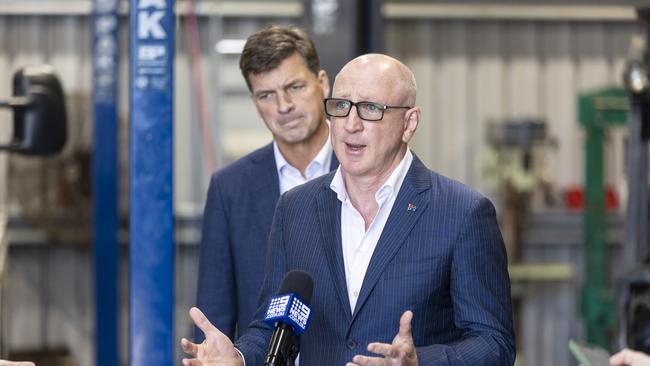
But the Coalition warned the proposal “lacks detail”, offering lukewarm support for nixing the card costs.
Shadow Treasurer Angus Taylor said Labor continues to offer only band aid solutions.
“This “announcement” is completely void of detail and doesn’t offer any tangible solutions to the cost of living crisis in the here and now,” he said.
The announcement comes after the bosses of the Big Four banks faced the House Economics committee in August, with Labor MP Jerome Laxale taking aim at card costs.
Brandishing a crumpled $5 bill, Mr Laxale questioned why he was charged $5.08 for paying for a coffee by card.
NAB boss Andrew Irvine seconded the sentiment, revealing he’d been slugged a 50c surcharge in a recent coffee run in Sydney.

The move revealed the bubbling discontent over card costs, with the Australian Competition and Consumer Commission securing only a handful of wins against companies passing through excessive surcharging in recent years.
The ACCC is the responsible agency for enforcing against companies which slug customers in excess of their card costs, in breach of current regulations.
Unveiling its card cost push, the Albanese government also handed the ACCC an extra $2.1m to run investigations into surcharging.
The regulator’s enforcement record in the area has been muted, securing a $159,840 fine in 2021 after finding Nine Entertainment slugged customers in excess of its actual card costs.
Nine also repaid $450,000 to wrongly charged customers over the wrongdoing.
Businesses are currently able to pass on surcharges to customers for both credit and debit transactions, often at a higher rate for the credit payments.
However, some companies also “mix” the transactions, charging a flat fee for both, leaving those paying on debit to foot an otherwise higher bill.
This is alongside a fee for the different payment rails, EFTPOS, MasterCard, or Visa, each of which attracts its own cost to transact on.
In 2003, the RBA imposed a surcharge on MasterCard and Visa, as both payments previously required no cost be passed on to users of their platforms.
A similar system was also imposed on debit cards in 2007, removing surcharge limits.
However, this move has attracted criticism, with market watchers warning it has allowed businesses to pass through costs in excess of their card payments to consumers.
This came at a time when cash still predominated in the financial system, with the rise of electronic payments leaving physical currency now a small slice of the overall payments landscape.
The rules also excluded several digital payments platforms including Stripe, Square, Adyen and PayPal who remain outside the RBA’s remit.
The Australian Banking Association said the current surcharging rules were “more than 20 years old” and “no longer fit for purpose” noting more than 90 per cent of payments are now made electronically.
ABA chief executive Anna Bligh said the move to dump debit card surcharges “would be a win for consumers and lead to more clarity and certainty for them”.
“It makes sense that consumers know the final price before they go to pay,” she said.
“Our industry will work with the RBA, the Government and retailers through this review process to get a better outcome for Australians.”
Grant Halverson, a payments consultant, said the ban on debit transactions was a “partial solution to the problem in the Australian payments industry”.
SmartPay told investors it was “engaged with the RBA on the review of surcharging and will provide further information on any potential impacts of any changes once there is more certainty of the conclusion of the review”.
While Tyro CEO Jon Davey said consumers should not pay excessive surcharges, “nor should businesses fund the consumer benefits that come with high-cost cards and loyalty programs.”
“Debit offers consumers and merchants the ability to make convenient, secure and traceable transactions,” he said.
“We support any review that assesses the true cost of card acceptance, including both debit and credit, for the fair regulation of payment acceptance in Australia.”
Former Macquarie taxi transactions company Live Payments offers its business users the ability to earn Qantas points, offering users processing fees up to 2.59 per cent which can be passed on to customers.
NAB also offers its customers the ability to charge surcharges up to 15 per cent on the bank’s payments terminals, but warns businesses to “not act in a misleading or deceptive way”.
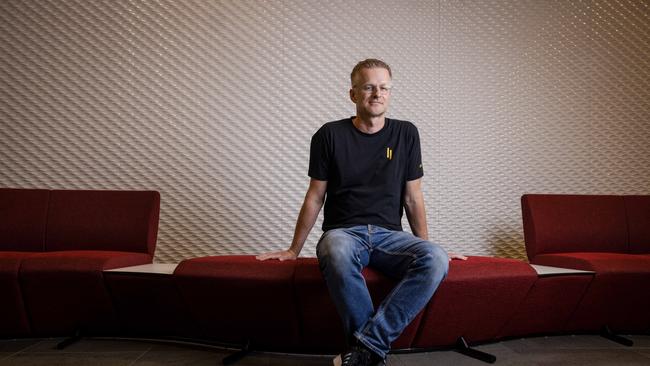
Ben Pfisterer, boss of Melbourne payments company Zeller, said scrapping debit costs could prove problematic, noting Australian businesses already had access to some of the lowest costs for blended rates on card payments in the world.
Mr Pfisterer, who previously ran rival payments company Square’s Australian business, said there was a “common misconception that interchange rates are the only costs that go into safely processing a transaction”.
“Interchange is now only a minority cost line amongst myriad rising costs,” he said.
“These are very real cost areas that need to be undertaken to help make Australia’s payments ecosystem one of the most secure, innovative and competitive payment systems in the world.”
But Mr Pfisterer said despite Australia having low card costs, there are “clearly providers encouraging and facilitating excessive surcharging”.
“The RBA’s policy clearly outlined that surcharging anything ‘above the reasonable cost of payment processing’ was prohibited, so whenever extra services or benefits like frequent flyer points are layered onto the underlying payment costs, then there’s clearly an issue,” he said.
“Unfortunately, this has been allowed to go for so many years without it being challenged or enforced.”
Mr Pfisterer said the RBA and the ACCC should “reinforce the mandate that all payment providers have to remove costs that aren’t directly related to processing the payment”.
He said limiting the ability for any surcharge to be applied that’s higher than the underlying cost and forcing companies to display the full transaction amount inclusive of any surcharge was necessary.
“Both these steps would go a long way in curtailing the clear examples of excessive surcharging.”
Originally published as Industry wants more than just planned debit card fee axed


